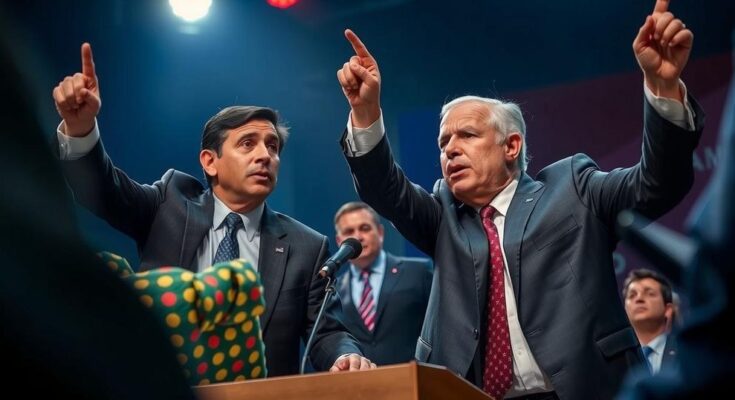Uruguay’s presidential election has escalated into a fiercely competitive runoff between Álvaro Delgado and Yamandú Orsi, reflecting a polarized electorate. With the former governing party facing challenges from a coalition previously in power that enacted progressive reforms, the candidates are focused on addressing crime and economic concerns, setting the stage for a pivotal election in the nation’s democratic development.
Uruguay is in the midst of a closely contested presidential runoff election, with the incumbent conservative party and the leftist Broad Front coalition vying for leadership after neither secured a majority in the prior round of voting. Álvaro Delgado, of the National Party, and Yamandú Orsi from the Broad Front represent contrasting approaches, particularly following a period of governance where major social reforms such as the legalization of abortion and same-sex marriage were achieved.
In the initial round held on October 27, the Broad Front garnered 44% of the votes compared to the National Party’s 27%, but additional support from other conservative factions strengthened Delgado’s position as the elections move into a decisive second phase. Analysts have noted that both candidates face an electorate characterized by uncertainty and apathy, as discussions primarily revolve around social spending and income inequality. Unlike other countries, the political landscape in Uruguay appears devoid of the anger and populism that has emerged elsewhere.
The candidates are especially focused on addressing the increased violent crime, a significant concern among voters. Delgado advocates for stringent law enforcement measures, including a new high-security prison, while Orsi proposes a more community-centered approach to crime prevention. As the election represents a referendum on current leadership, Delgado emphasizes continuity with outgoing President Luis Lacalle Pou’s successful economic policies, while Orsi positions himself as a progressive alternative drawing inspiration from former President José Mujica.
Both candidates aim to appeal to the electorate with proposals aimed at economic growth and social reform, albeit Orsi’s strategy is designed to maintain stability rather than enact major policy shifts. Ultimately, the outcome of this election could significantly shape Uruguay’s future as it continues to navigate complex social and economic challenges with a stable democratic framework.
The context of this presidential runoff in Uruguay arises from a larger trend within the nation’s political evolution, particularly following the term of the Broad Front, which governed for a decade and a half prior to the current center-right leadership. The previous administration was notable for its progressive social reforms and stability, setting a high benchmark for the current candidates. The current election is marked by a particularly close race between candidates from both major parties, reflecting a shift in the electorate’s sentiments and emerging challenges such as crime and economic disparities.
In conclusion, Uruguay’s presidential runoff features two candidates with distinctly different visions for the country’s future, encapsulated in a backdrop of social reform and economic challenge. The close nature of the race indicates significant voter engagement, albeit tempered by a broader sense of uncertainty. As both candidates seek to address pressing issues of crime and inequality, the results will determine the trajectory of Uruguay’s governance and democratic stability.
Original Source: www.voanews.com




